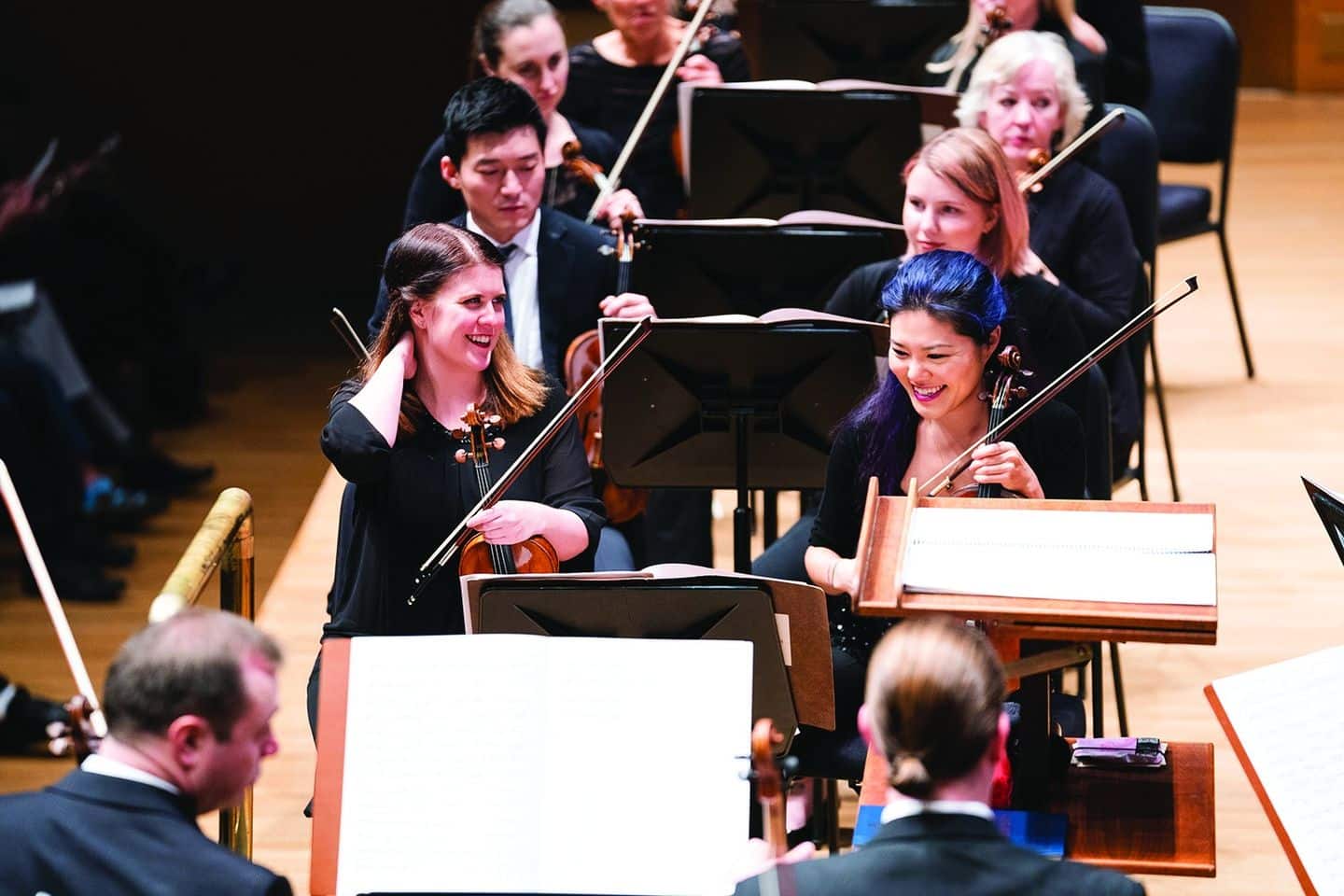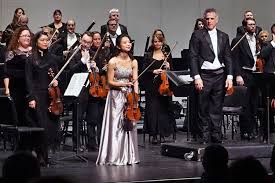Music director urges musicians to go conductorless
OrchestrasFrom Erin Keefe, concertmaster of the Minnesota Orchestra:
Our wonderful new Music Director Thomas Søndergård suggested the idea of an Orchestra Spotlight series where the musicians of the Orchestra put together an unconducted program, because he wants to encourage the musicians to listen and react more to one another without a central figure dictating each beat and phrase. An orchestra is essentially a large chamber music ensemble, and working together in this way further hones our ears and ensemble skills, demanding that we rely even more on one another for musical and physical cues in communicating phrasing, tempos and articulation.
“While I will be leading several of the pieces from my concertmaster chair, this type of orchestral experience allows all the members of the ensemble the opportunity to be more active participants in the rehearsal process and to join in crafting our collective interpretation of these pieces.
“The program itself is an exciting selection of works highlighting the various sections of the Orchestra, and I’m excited that included in these is one of my absolute favorite string orchestra pieces, the Bartók Divertimento. We hope you enjoy the concert!”






Comments